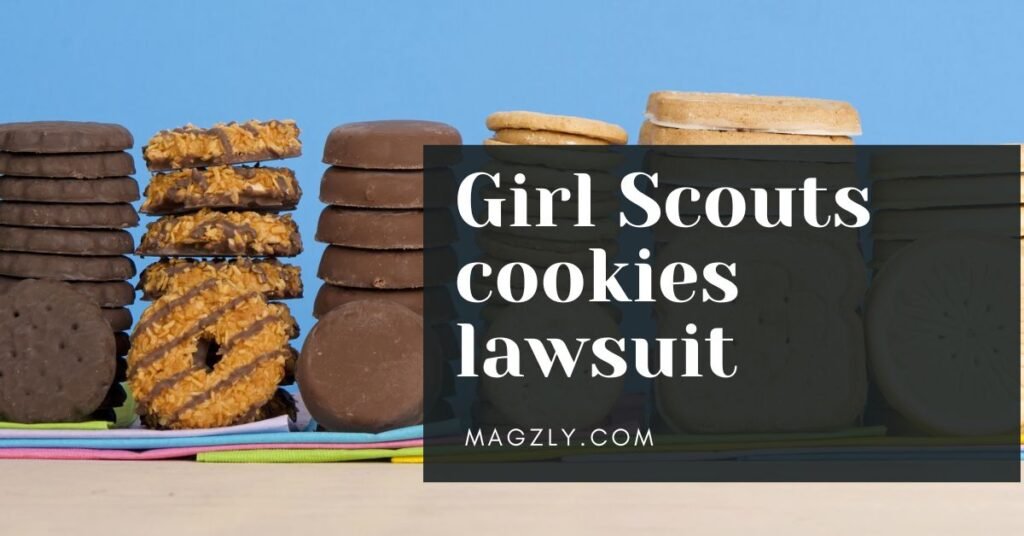The Girl Scouts Cookies Lawsuit: What It Means for the Cookie Business
Introduction
Girl Scouts cookies are a beloved part of American culture, but recent legal battles over their trademark and sales model have raised important questions about the cookie industry. In this article, we’ll break down the Girl Scouts cookies lawsuit, who’s involved, and what it means for the cookie business going forward. Let’s explore the ongoing legal disputes and their potential impact.
What Is the Girl Scouts Cookies Lawsuit? (Understanding the Legal Issue)
The Girl Scouts cookies lawsuit centers around a dispute over the trademark and sales rights of the iconic Girl Scouts cookies. While Girl Scouts cookies are a staple of childhood memories for many, the nonprofit organization has been embroiled in a series of legal actions to protect their cookie sales model and intellectual property.
The Legal Battle: Trademark and Brand Protection
The issue began when cookie competitors challenged the Girl Scouts for controlling the market of cookie sales during certain times of the year. Companies like Walmart, Hostess, and Keebler have long sold cookies that mimic Girl Scouts cookies, leading to confusion among consumers. This has sparked a trademark dispute, with Girl Scouts working to protect the brand identity of their iconic treats.
What’s at Stake?
-
Trademark Protection: The Girl Scouts want to protect the name, packaging, and trademarks of their cookies to maintain exclusivity in their sales.
-
Revenue Loss: There’s concern about competing cookie sales undermining their fundraising efforts, which contribute to Girl Scout programs nationwide.
-
Market Share: Larger companies like Keebler and Nabisco have been accused of using the same cookie names and packaging designs, potentially diluting the market share of Girl Scouts.
Who Is Involved in the Girl Scouts Cookies Trademark Lawsuit?
The lawsuit involves several key players, each of whom has a stake in the outcome of the cookie dispute.
Girl Scouts of America
Girl Scouts of America (GSUSA) is the primary organization at the heart of the lawsuit. They have been working diligently to protect the brand and its cookie sales model since the controversy emerged. The Girl Scouts view their cookie sales as integral to their fundraising model, which helps fund their activities and programs.
Cookie Competitors and Corporations
-
ABC Bakers and Little Brownie Bakers are the two official bakers for Girl Scouts cookies. They are responsible for baking and distributing the cookies, but they also protect the cookie trademarks as part of their agreement with GSUSA.
-
Walmart, Hostess, Keebler, and other cookie manufacturers have been accused of producing knockoff versions of Girl Scouts cookies and competing during the Girl Scouts’ official cookie-selling season.
Legal Entities and Government Bodies
-
United States Patent and Trademark Office (USPTO) plays a significant role in determining the validity of trademarks and intellectual property rights in this case.
-
Courts will decide whether larger companies infringed on Girl Scouts’ trademark and how this will affect future sales.
How Does the Girl Scouts Cookies Lawsuit Impact the Industry?
This legal dispute has significant consequences for the cookie industry and cookie sales in the United States.
Impact on Girl Scouts Cookie Sales Model
One of the primary concerns is that the influx of cookie competitors during Girl Scouts’ selling season could eat into their revenue. Traditionally, Girl Scouts have sold cookies through local troops, often door-to-door or through online sales. If consumers become confused by the availability of similar cookies elsewhere, they may choose not to purchase from the scouts.
Effect on Trademark Law in the Food Industry
The lawsuit could have broader implications for trademark law in the food industry, setting a precedent for how food brands protect their identities. The decision could affect everything from cookie packaging designs to how companies enforce their trademark rights in the competitive food market.
Legal Precedents in the Cookie Industry
This lawsuit could influence how brands in the cookie industry use trademarks to protect their products. Keebler and Nabisco, which have often sold similar cookies under different names, could face challenges from the Girl Scouts if the courts decide in favor of exclusive protection for Girl Scouts cookies.
What Are the Pros and Cons of the Girl Scouts Lawsuit?
This lawsuit presents both challenges and benefits for the Girl Scouts and the cookie industry.
Pros for Girl Scouts
-
Brand Protection: By winning the lawsuit, the Girl Scouts would solidify their control over the trademark and name of their iconic cookies, ensuring that their cookie sales model remains secure.
-
Funding for Programs: With increased cookie sales, Girl Scouts would continue to fund youth programs and provide opportunities for young girls across the country.
-
Clarification of Trademark Ownership: The lawsuit could lead to clearer rules about who controls certain cookie trademarks, helping to avoid confusion among consumers.
Cons for Girl Scouts
-
Public Backlash: The legal battle could potentially cause some negative publicity for the Girl Scouts if people perceive it as overly aggressive in protecting its profits.
-
Costs of Litigation: Legal battles come with high costs, and the Girl Scouts could incur significant expenses trying to defend their position in court.
-
Strained Relationships with Competitors: If the lawsuit escalates, it could damage the relationships between the Girl Scouts and larger cookie manufacturers, potentially affecting future collaborations.
How Does the Girl Scouts Lawsuit Affect the Cookie Industry?
The cookie industry as a whole could experience several changes depending on the lawsuit’s outcome.
Competitive Landscape of Cookie Brands
If the Girl Scouts win, larger cookie companies might have to adjust their strategies to avoid infringement on cookie trademarks. This could lead to more branding differentiation in the market and potentially higher prices for premium cookies, especially for those mimicking Girl Scouts flavors.
Potential Regulatory Changes
If the lawsuit brings attention to the need for stricter regulation on food trademarks, the cookie industry could face new regulations on how similar products can be marketed. For example, Keebler might need to redesign packaging or change the names of their similar products to avoid confusion with Girl Scouts cookies.
Conclusion
The Girl Scouts cookies lawsuit has brought to light important issues about trademark rights, cookie sales competition, and the cookie industry. While the outcome is yet to be determined, it’s clear that the result will shape how cookie brands operate in the future. Whether you’re a Girl Scouts fan or just someone who loves cookies, this legal battle could have lasting implications. Stay tuned to see how the case unfolds—and remember to support your local Girl Scouts when they come knocking!
Also Read: Bolly4u Movies: The Truth Behind Free Streaming
FAQ
1) What is the lawsuit about regarding Girl Scouts cookies?
The lawsuit centers around trademark disputes and cookie sales competition. The Girl Scouts are working to protect their brand identity and prevent companies from selling similar cookies during their annual cookie-selling season.
2) Who is involved in the Girl Scouts cookies trademark lawsuit?
The Girl Scouts of America (GSUSA) are the primary plaintiffs, with ABC Bakers and Little Brownie Bakers involved in protecting the cookie trademarks. Keebler, Hostess, and Walmart are the defendants accused of infringing on Girl Scouts’ trademark rights.
3) What is the impact of the Girl Scouts cookies lawsuit on sales?
The lawsuit has the potential to protect Girl Scouts’ cookie sales, ensuring they maintain their market share during their cookie-selling season. It could also limit the sale of competing cookies that could confuse consumers.
4) How do the Girl Scouts protect their cookie brand?
The Girl Scouts protect their brand by filing lawsuits against companies selling similar products, ensuring that their cookies have exclusive trademark rights. They also closely monitor cookie sales and marketing during key times of the year.
5) Is the Girl Scouts cookie lawsuit related to cookie sales competition?
Yes, the lawsuit addresses competition from larger companies like Keebler and Walmart, which sell cookies similar to Girl Scouts’ trademarked products. The Girl Scouts argue that these sales hurt their revenue and create market confusion.
6) How does the Girl Scouts lawsuit affect the cookie industry?
The cookie industry could see changes in trademark laws, especially for companies selling similar products. Additionally, if the Girl Scouts win the lawsuit, it could lead to more regulations and a more competitive market for cookie sales.




